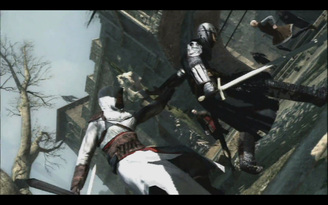 Swords not necessary for combat. As a member of the Assassins, you must find nine Templar agents in Damascus, Acre, and Jerusalem... and kill them...
1. Gameplay
There are two "main characters", which may seem confusing but actually isn't too bad. In present time, the main character is Desmond, just a young guy who gets kidnapped by the Abstergo corporation for his memories. He is genetically linked to an Assassin named Altaire who lived during the crusades. Desmond is forced to use a machine known as the Animus to relive the memories of Altaire (the other main character)so that Abstergo (and the Templars who run Abstergo) can find out the location of the "Piece of Eden". I was definitely impressed by the smoothness of the “parkour” (see "Definitions"). My character was able to climb buildings with ease and I hardly ever ran into a situation where he grabbed the wrong ledge. I did occasionally find my character unable to climb further even though a visible handhold was within reach, but that was usually solved by scooting over to a different location. The in-Animus storyline was very compelling. I understood the reasoning behind the Assassin’s quests and most of the targets had obvious links together. There were some targets that left me questioning why my character was sent to kill him (the first target in particular left me slightly puzzled), but regardless of what the link was the characters were almost always bad people whose death was at least somewhat justified. However, with some of the targets that line was blurred significantly. This was particularly the case with William of Montferrat, whose only crime seemed to be treating his men too harshly. I always continued with the assassination (the storyline required it to move forward), but never felt like the assassination was fully justified (which the main character Altaire seemed to echo in his post-assassination sentiments). The only part that annoyed me to the point of making this game less fun was the out-Animus storyline. It seemed entirely unnecessary. The idea is that Templars and Assassin’s are fighting for “control” of the earth and some ancient artifacts that can be used as tools to gain that control. Yet this slowed down the overall feel of the game. It was an abrupt change to the normally faster-paced action of the assassination missions. It also required that the scriptwriters come up with an explanation as to why Desmond in present times was able to relive the memories of Altaire during the Third Crusade. Their explanation wasn’t even loosely based in scientific logic. The in-Animus gameplay earned an overall fun rating of 8. It is the majority of the gameplay and the storyline makes logical sense. But the fun that I had with Altaire was always peppered with the boring, illogical second plot-line with the character Desmond, which resulted in an overall fun rating of 7.
Within any given “segment” there are always six investigations, one main mission, and two side missions. The investigations vary from interrogations to challenges. The side missions are always saving civilians from harassing gangs (there are 12 per area of each city) and finding the viewpoints in the area (there are usually around 9 per area). This doesn’t include the extra achievement-based objectives such as finding and killing every templar in the game (60 total) and finding every flag in the game (360 total). The flags in particular took me many hours of searching to complete. While this game does have a good length to the story, the game lacks replayability.
The climbing mechanics were mostly good, but during a chase even a slight setback in a player’s movements often resulted in the guards catching up with and attacking the player. It wasn’t a huge loss, but it did feel unfair when I was caught as a result of Altaire jumping in the wrong direction or something to that effect. Also, it felt illogical to me that the guards were able to climb buildings and perform the same acrobatic stunts as I was at the exact same speed despite the fact that Altaire was supposed to be a highly-trained member of the Assassins. No matter what distance I ran, the guards were always able to keep up with me on rooftops. 2. Parental Notices
What led to the score of 7 (rather than a score of 4 or 5) is the type of violence that is included. The player is able to counter attacks from enemies, which often leads to some pretty gruesome results. One counter has the player take a large knife, stab the target through the foot, then bring the knife up to slice the target’s face. Another involves impaling a charging target on the player’s sword before pushing the target off and returning to an offensive position. This certainly wasn’t the most graphic game that I have played, but the violence included in the game is nothing to be scoffed at.
3. Other Factors
This fight takes place during the Third Crusade in various historic locations around the Middle East. Religion plays a pivotal part in many missions and in the explanations of many of the targets’ actions. Outside of the Animus, the storyline is similar. The Templars kidnap the player (Desmond), and force him to relive memories of his ancestors in order to find the location of the other Pieces of Eden. Religion is also highlighted at the end of the game when the antagonist reveals that all religion and many “supernatural” events (such as the parting of the Red Sea) are all a result of the illusion created by the Piece of Eden.
Getting down off of tall towers is also addressed in the game mechanics. Altaire is able to jump from tall ledges down into bales of hay, from which he can emerge unscathed. The player is also able to pull off some extreme stunts, such as being able to leap from rooftop to rooftop, catch himself from falling by grabbing a ledge, and jumping through merchant stands. Needless to say, acrobatics are a heavy element of the game.
One of the targets is a human trafficker who is sending his victims / slaves to the doctor in Acre. The kidnapping links the targets in Jerusalem with those in Acre. Desmond, the main character in the real world, is also kidnapped by the Templars and held hostage until his memories are accessed. It is implied that he is to be executed once his memories are complete, but a twist of events prevents the execution from occurring. Torture When the player is first introduced to the doctor, the doctor ends up breaking the legs of one of his patients so that the man doesn’t try to escape. While it was a disturbing scene, it added to the justification of the doctor’s assassination. Experimentation The doctor Garnier de Naplouse is show in the game experimenting on kidnapped victims trying to recreate the mind-controlling affects the Piece of Eden has on people. The doctor justifies it by saying that he is trying to help the sick and the poor. Homosexuality
One of the targets, the Merchant King of Damascus, subtly hints at his homosexual lifestyle and how the nobility of Damascus looks down on him because of it. He uses this as part of the justification for murdering them.
0 Comments
Leave a Reply. |
Like what we do? Want to see more? Donate to the site using the button below!
Not sure what a term means? Read the definitions!
Not sure what a review section is about? Find out more information!
|
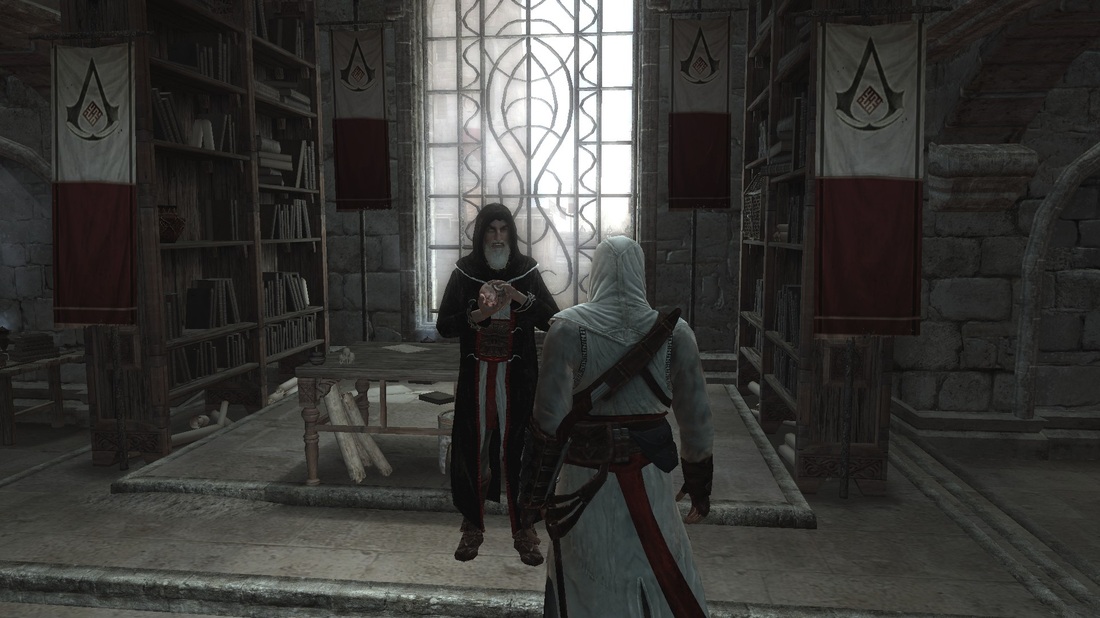
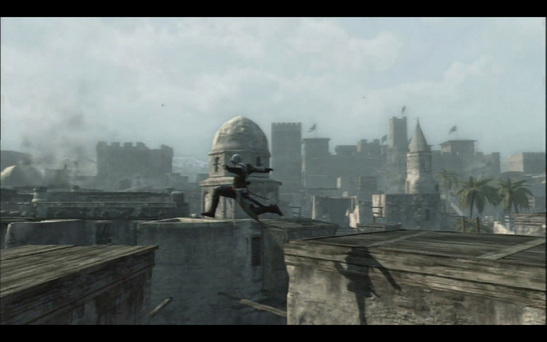
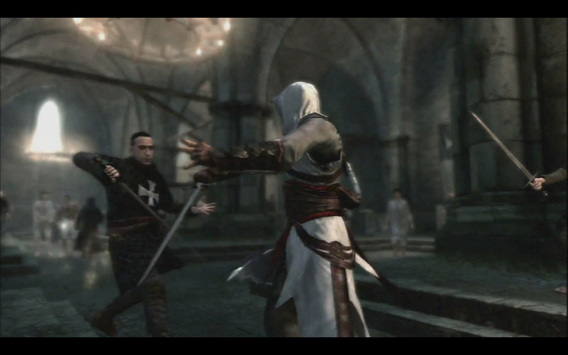
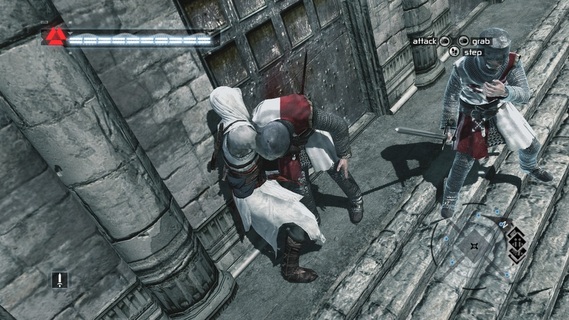
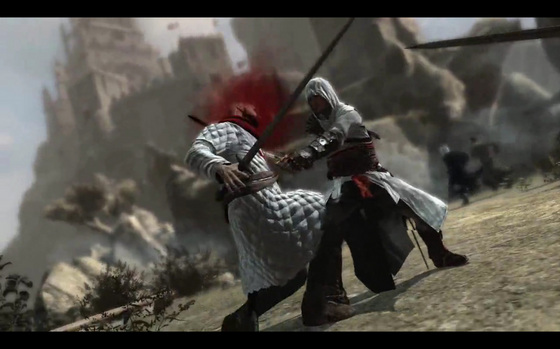
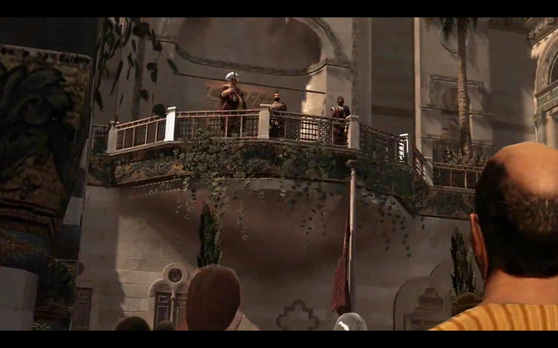
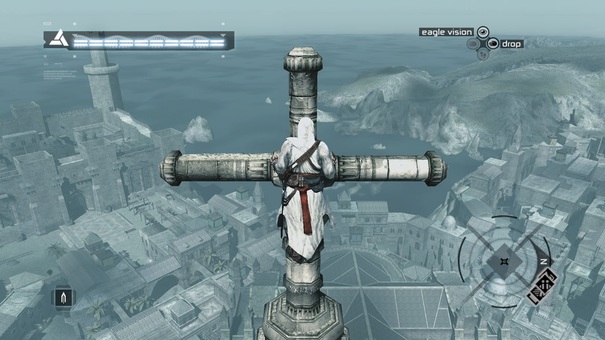
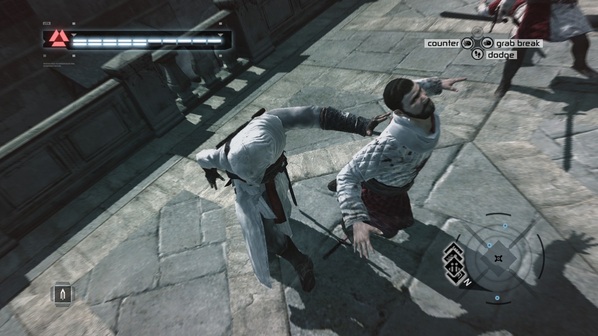
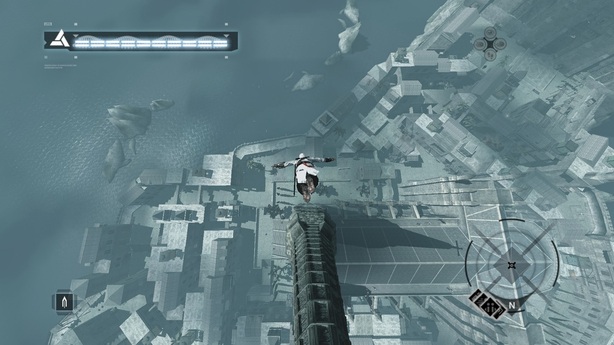
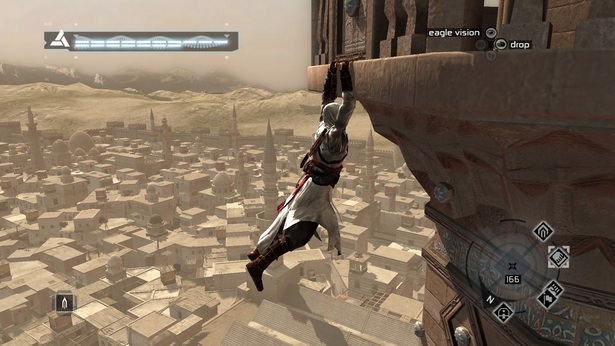
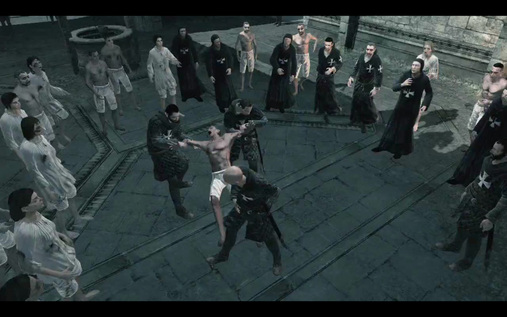
 RSS Feed
RSS Feed